REU Site: Algebra, Combinatorics, and Statistics
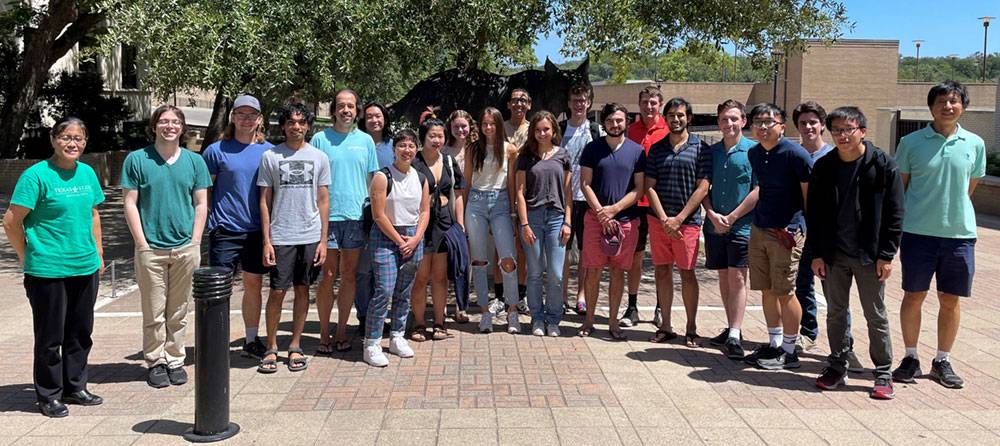
June 10 - Aug 2, 2024
Stipend: $4,800 plus travel support, meal subsidy, and free dorm.
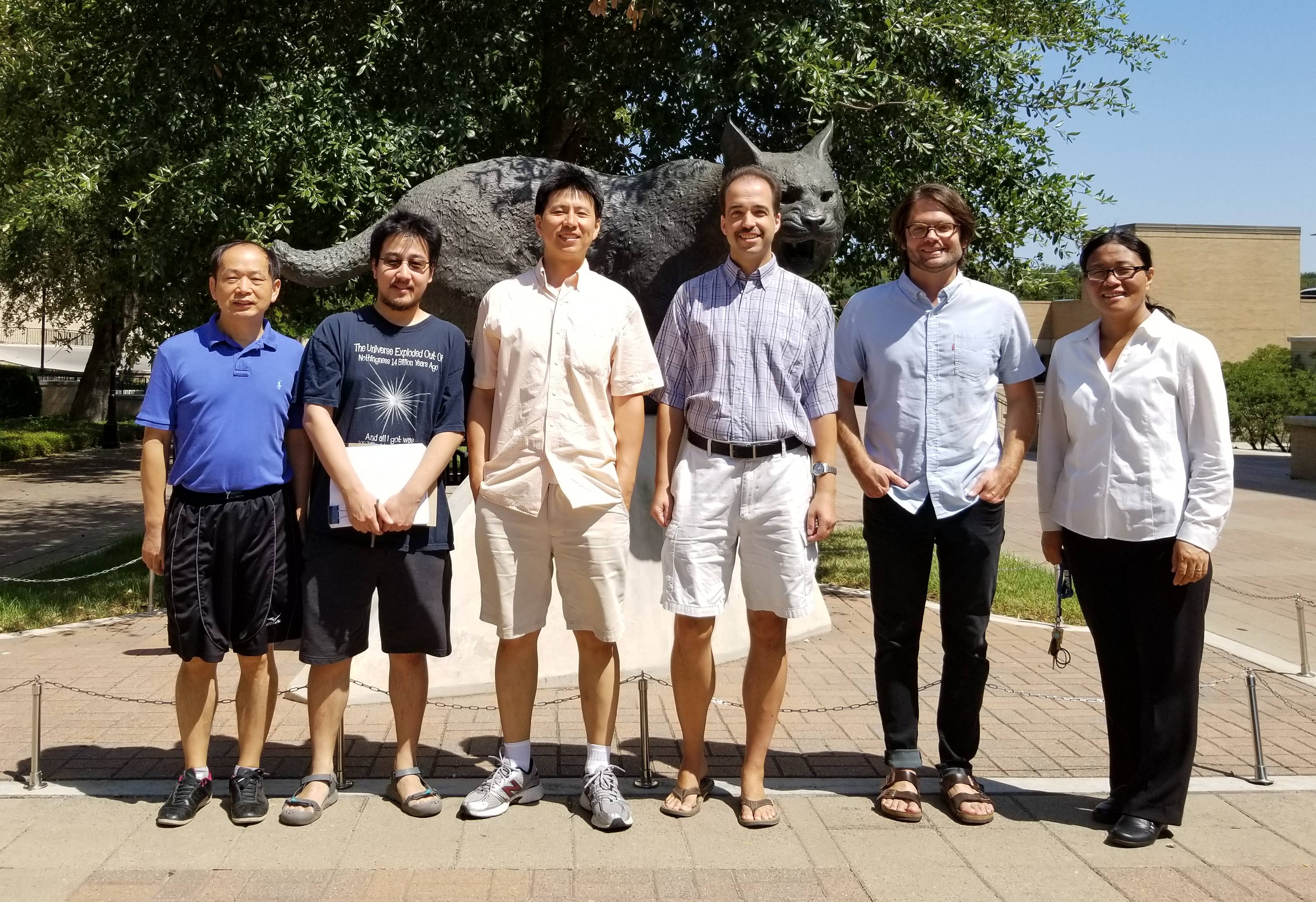
The Department of Mathematics at Texas State University will host an 8 week summer REU in the summers of 2022, 2023 and 2024, involving nine students per year working in teams of three under the supervision of a faculty mentor. The program will provide lodging, meals, transportation, as well as a stipend for all students. The chosen participants will come from a selective pool of applicants, and the program will directly involve them in research projects guided by faculty mentors. Beyond successful research outcomes the objectives of the program are to introduce students to aspects of mathematical research and the broader mathematical community. At the same time the students will develop mentoring relationships with faculty as they consider pursuing graduate degrees and a career in mathematics. Students will be part of an active community at Texas State; in addition to the REU there are a number of summer programs and world-renowned mathematicians who visit campus, and participants will be involved in various activities that bring students and faculty together. A diverse body of participants is strongly desired and priority will be given to applicants from groups that are underrepresented in the mathematical community. This includes minority students, women, as well as those students coming from institutions with limited resources to support independent research projects for their undergraduates.
The research projects include a diverse collection of topics based on the research interests of the faculty mentors. Specific projects include commutative algebra arising from graphs and matroids, algebraic and combinatorial aspects of higher dimensional tilings, combinatorial problems arising from group theory, arithmetical properties of group invariants, linear and permutational representations of groups, statistical analysis on biological data, and survival analysis. Participants will spend some of the time learning the necessary background while pursuing original research. Students will be asked to present their findings in oral presentations, and will be guided in summarizing their work in a mathematical research paper. In the course of the program students will be trained in various skills including literature review, using software such as GAP, Macaulay2, and R to make and check examples, oral presentation skills, as well as written mathematical communication using Latex. Communication with the participants will continue after the program ends, and for instance students will be encouraged to present their work at local, regional, and national conferences in the subsequent academic year.
This program is supported by NSF and Texas State University.
(Due to NSF rules, only US citizens and permanent residents are eligible for funding assistance. International students in the USA may apply to the program but will only be accepted in exceptional cases.)
Potential Research Projects for summer 2023
Prime graphs of solvable groups
This project is at the intersection of finite group theory and graph theory and will be supervised by Thomas Keller. There are several graphs associated with finite groups which are currently of interest in the field. The subject of this project are graphs related to the element orders of a finite group. The best known such graph is the prime graph Γ(G) of the group G and is defined as follows. The vertices are the prime numbers dividing the order of the group, and two such primes are linked by an edge if and only if their product divides the order of an element of the group. For solvable groups it is known that Γ(G) has at most two connected components, and the structure of the group in case of two components is well understood. Moreover, for solvable groups a purely graph theoretical description of the prime graphs is known. This has recently been extended to larger classes of groups. There are two main types of questions which are commonly studied in this context. First, how do restrictions on the graph influence the group structure? For example, groups whose prime graph is a tree have been classified. Second, how do restrictions on the group influence the prime graph? In this project, Keller will lead students to study some interesting questions of this type of various levels of difficulty. Of particular interest would be to obtain classifications of the prime graphs of some more classes of groups.
Depending on the ability and interest of the students, they can choose whether they prefer to work mostly on the group theoretical end or on the graph theory side of things. It is assumed that students have had at least one semester of Modern Algebra or Abstract Algebra. Explanations and background of additional topics, such as solvable groups and Frobenius groups, will be provided. The students will also have an opportunity to learn the computer algebra system GAP, which is useful in examining specific examples of groups that may be useful in making or confirming conjectures.
A Model-based Test for Treatment Comparisons based on Interval-censored Survival Data
Interval-censored (IC) data occurs frequently in cohort studies, in which the survival time of an individual is only known to belong to an interval, (L, R]. To compare the survival distributions of several treatment groups based on IC data, various nonparametric test procedures have been developed including the (unweighted or weighted) generalized log-rank tests. Alternatively, regression approaches can be used to make such comparisons when covariates indicate treatments under some regression model (e.g., Cox proportional hazards model). In this project, we will be developing a new test procedure for the IC data under other regression models such as proportional odds model. Assuming no difference among groups, a test statistic will be proposed and estimated using the nonparametric maximum likelihood estimate of the common survival function. We will investigate the distributional properties of the test statistic and conduct a simulation study to evaluate the performance of the proposed test.
Chip firing on signed graphs and beyond
Chip firing game is a game played on a graph: imagine chips at each node of a vertex and each node can be 'fired' to give one chip to each of its neighbors. This simple game has surprising depth and has become an important part of the study of combinatorics and its related field over the last decade. It has beautiful connections to algebraic geometry, group theory, representation theory, and various other fields of mathematics, and also to physics and biology as well. Our main aim is to investigate and generalize the various known results for chip firing on a graph, to a bigger class of objects called signed graphs and beyond using the template provided by Kilvans-Guzman. Signed graphs are graphs where each edge is assigned a sign. This class of objects is also a deeply studied, fascinating object and has multiple interesting results in linear algebra and matroid theory. We will attempt to use various techniques in graph theory, linear algebra, and commutative algebra to extend the results known for chip firing on graphs to signed graphs and heavily rely on programming languages such as sage or python to experiment on various signed graphs.
Publications from the 2022 program:
- M. Dolorfino*, L. Martin*, Z. Slonim*, Y. Sun*, Y. Yang, Classifying solvable primitive permutation groups of low rank, https://arxiv.org/abs/2211.16558, Journal of Computational Algebra, under revision.
- M. Dolorfino*, L. Martin*, Z. Slonim*, Y. Sun*, Y. Yang, On the characterization of sporadic simple groups by codegrees, https://arxiv.org/abs/2301.02365, Bulletin of the Australian Mathematical Society, accepted.
- M. Dolorfino*, L. Martin*, Z. Slonim*, Y. Sun*, Y. Yang, On the characterization of Alternating groups by the codegree set, https://arxiv.org/abs/2301.02663, submitted.
- N. Akula*, N.N. Hung, M. Lideros*, K. O'Connor*, Y. Yang, On conjugacy classes of varying p-regularity level, in preparation.
- T. Edwards*, T.M. Keller, K. Latha*, R. Pesak*, The prime graphs of groups with arithmetically small composition factors, https://arxiv.org/abs/2212.03389, submitted.
- M. Cho*, A. Dochtermann, R. Inagaki*, S. Oh, D. Snustad*, B. Zacovic*, Chip-firing on signed graphs, in preparation.
- S. Sun, E. Ren*, M. Ward*, N. Eloff*, L. Board*, Comparative analysis of six correlation metrics on DNA co-Methylation, in preparation.
*undergraduate
Publications from the 2021 program:
- M. Gintz*, M. Kortje*, M. Laurence*, Z. Wang*, Y. Yang, Finite permutation groups with few orbits under the action on the power set, II, Publicationes Mathematicae Debrecen, 102 (2023), 237-254.
- M. Gintz*, T.M. Keller, M. Kortje*, Z. Wang*, Y. Yang, The number of set orbits of permutation groups and the group order, Bulletin of the Australian Mathematical Society, 106 (2022), 89-101.
- M. Gintz*, M. Kortje*, M. Laurence*, Y. Liu, Z. Wang*, Y. Yang, On the characterization of some non-abelian simple groups with few codegrees, Communications in Algebra, 50 (2022), 3932-3939.
- M. Gintz*, M. Kortje*, M. Laurence*, Y. Liu, Z. Wang*, Y. Yang, Square-free character degrees of projective representations, in preparation.
- A. Gutierrez*, Y. Huang*, D. Peckham*, Y. Yang, On the even abelian composition factors of finite linear groups, Involve, accepted.
- A. Gutierrez*, Y. Huang*, N. N. Hung, D. Peckham*, Y. Yang, A remark on a conjecture of Navarro and Tiep, Communications in Algebra, 51 (2023), 150-156.
- Z. Huang*, T.M. Keller, S. Kissinger*, W. Plotnick*, M. Roma*, Y. Yang, A classification of prime graphs of pseudo-solvable groups, https://arxiv.org/abs/2211.15818, submitted.
- Z. Huang*, T.M. Keller, S. Kissinger*, W. Plotnick*, M. Roma*, On the generation, structure, and symmetries of minimal prime graphs, https://arxiv.org/abs/2210.13680, submitted.
- RJ Barnes*, A. Dochtermann, C. Henderson*, F. Herr*, S. Oh, E. Partida*, Simon’s conjecture for 1-decomposable complexes, in preparation.
- S. Sun, A. Pritchard*, E. McFall*, R. Jiang*, Methylation patterns of tumor suppressor genes and oncogenes in breast cancer, in preparation.
*undergraduate
Publications from the 2020 program:
- C. Florez*, J. Higgins*, K. Huang*, T. M. Keller, D. Shen*, Y. Yang, The Prime Graphs of Some Classes of Finite Groups, Journal of Pure and Applied Algebra, 226 (2022), 106990, 19 pp.
- C. Florez*, J. Higgins*, K. Huang*, T. M. Keller, D. Shen*, Minimal Prime Graphs of Solvable Groups.
- C. Florez*, J. Higgins*, K. Huang*, T. M. Keller, D. Shen*, The Adjacency Spectra of Some Families of Minimally Connected Prime Graphs., Involve, accepted.
- M. Coleman*, A. Dochtermann, N. Geist*, S. Oh, Completing and extending shellings of vertex decomposable complexes, Seminaire Lotharingien de Combinatoire, 85B (2021), Art. 88, 12 pp., SIAM Journal on Discrete Mathematics, 36 (2022), 10.1137/21M1445119.
- L. Anesti*, M. Harding*, M. Pridemore*, E. Shao*, Q. Zhao, Generalized log-rank test for left-truncated and interval-censored data, in preparation.
* undergraduate
Publications from the 2019 program:
- A. Betz*, M. Chao-Haft*, T. Gong*, T. M. Keller, A. Ter-Saakov*, and Y. Yang, Finite permutation groups with few orbits under the action on the power set, Rocky Mountain Journal of Mathematics, 51 (2021), 1553-1565.
- A. Betz*, M. Chao-Haft*, T. Gong*, A. Ter-Saakov*, and Y. Yang, On the odd order composition factors of finite linear groups, Journal of Group Theory, 23 (2020), 1057-1068.
- P. Cranford*, A. Dochtermann, E. Haithcock*, J. Marsh*, S. Oh, and A. Truman*, Biconed graphs, edge-rooted forests, and h-vectors of matroid complexes, Electronic Journal of Combinatorics, 28 (2021), #P4.31.
- S. Sun, A. Zane*, C. Fulton*, and J. Philipoom*, Statistical and Bioinformatic Analysis of Hemimethylation Patterns in Non-small Cell Lung Cancer, BMC Cancer, (2021) 21:268.
* undergraduate
Mentors
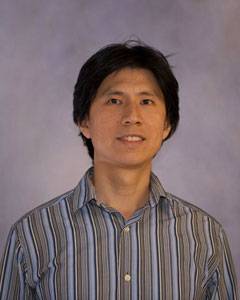
Yong Yang is currently an associate professor at the mathematics department of Texas State University. He received his PhD in 2009 from University of Florida under Alexandre Turull. He has published more than 80 high quality research papers, and his research interests are in finite groups and group representations, combinatorics, and number theory.
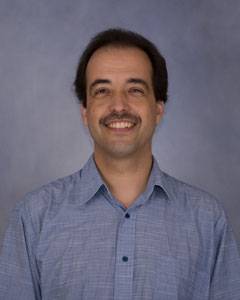
Thomas Keller is a Professor of Mathematics at Texas State University and has research interests in finite group theory. He has published more than 40 peer-reviewed research articles in prominent math journals. He is interested in the orbit structure of finite linear group actions and in conjugacy classes of finite groups. He has also done research with undergraduate and graduate students.
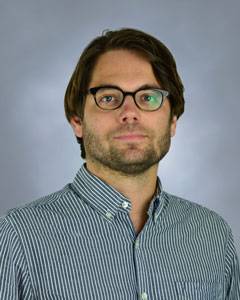
Anton Dochtermann received his PhD from the University of Washington where his advisors were Eric Babson and Isabella Novik. After postdoctoral positions at TU Berlin, Stanford, and U Miami, he joined the faculty at Texas State in 2016. His research interests are in topological and geometric combinatorics, and combinatorial commutative algebra. Recent projects include the commutative algebra of chip-firing, generalizations of parking functions for matroids, notions of higher-dimensional chordality, and topological methods in graph theory.
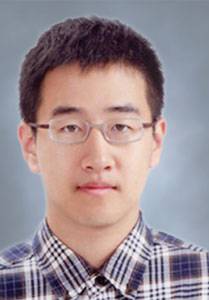
Suho Oh is currently an Associate Professor at the mathematics department of Texas State University. He received his PhD from Massachusetts Institute of Technology under Alexander Postnikov and did postdoctoral studies in University of Michigan under Sergey Fomin. His research interests are in algebraic combinatorics. He mainly deals with problems regarding matroids and polytopes, with applications to geometry and representation theory.
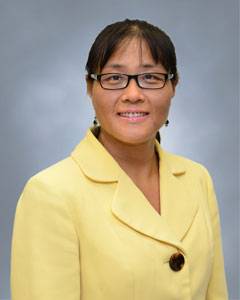
Shuying Sun received her PhD in statistics from the University of Toronto in Canada. Dr. Sun has interests in statistical genetics and bioinformatics and has published more than 20 peer-reviewed research articles in high-impact journals. Dr. Sun's research focuses on addressing challenging genetic and epigenetic questions using statistical and computational methods. She has been developing statistical methodologies and software packages for genomic problems using Bayesian methods, hidden Markov models, Markov Chain Monte Carlo algorithms, and linear models.

Qiang Zhao received his PhD in statistics from the University of Missouri-Columbia in 2004. He joined the faculty at Texas State in 2006 after working at the University of Texas–Pan American for two years as an assistant professor. His research interest is in survival analysis. Recent projects involve estimation of survival function and treatment comparisons for censored failure time data; estimation of mean functions and treatment comparisons for recurrent event data.
